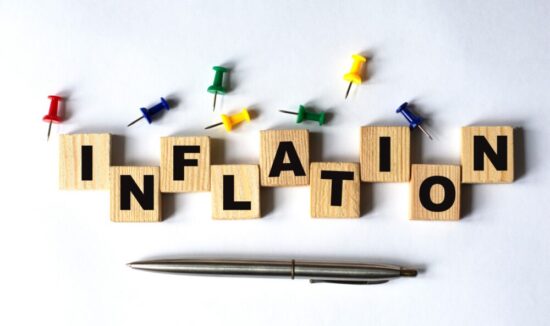Save Money
5 Negative Effects of Inflation and How to Navigate Them

Over time, the price of goods and services typically rises, a change that’s referred to as inflation. However, when the inflation rate exceeds a certain percentage, it puts a strain on households and businesses alike. Fortunately, there are ways to navigate some of the challenges. Here’s a look at five negative effects of inflation and what to do to survive them.
Reduced Purchasing Power
The most notable impact of inflation is reduced purchasing power. Prices go up, and that puts a strain on budgets. Essentially, a dollar doesn’t go as far as it used to, and that reduces how much you can buy.
Technically, there isn’t anything an individual can do about reductions in purchasing power, as they don’t have the ability to change prices. Instead, the best move is to spend strategically. Update your budget to reflect shifting prices and spend time planning your spending around deals, sales, coupons, and other types of discounts. That way, you can get the most for your money.
Higher Interest Rates
Generally, interest rates increase when inflation is high. The reason is that higher interest rates make borrowing less attractive. In turn, that can limit spending, which can lead to cooling inflation rates. However, it also makes borrowing expensive, which can strain budgets if it’s unavoidable.
Ideally, people are better off not opening up new credit accounts when interest rates move up, as the rates increase the cost of borrowing. If that’s unavoidable, make sure to shop around to secure the best possible rate you can find. Existing accounts with adjustable interest rates will end up generating more interest, so exploring refinancing options could be worthwhile if the rate is becoming unmanageable.
Harm to Growth Investments
When inflation becomes problematic, it can cause some volatility in the stock market. Growth stocks, in particular, can see a lot of activity, as cash flow concerns are more likely to harm the standing of this type of investment. Consumer-oriented stocks – especially those associated with non-necessity products or services – may also see declines in value if consumers stop buying the company’s offerings as they tighten their budgets.
Additionally, inflation diminishes the value of existing bonds, particularly high-duration ones. As a result, those who sell before maturity may receive less than they would during more stable economic periods.
Generally, navigating this sort of situation involves not being overly reactive. Many of the associated downturns are temporary, suggesting the underlying asset or company is positioned to recover as economic conditions improve. As a result, holding the investments could be a better option if you can ride out the storm.
Rising Prices on “Safe” Investments
When economic conditions cause uncertainty, many people adjust their investment strategy, turning to sectors or assets that are generally considered “safe.” Usually, this means value stocks, energy-related investment, commodities investing, and real estate, as they’re classic ways to hedge against inflation. In turn, the price of these types of investments can move up.
Again, this involves unavoidable price changes. As a result, you need to determine if the higher prices make these types of investments less worthwhile based on your strategy before making any decisions.
More Expensive Utility Bills
Inflation typically triggers a period of wage increases, which may seem like a positive. However, when it comes to utility bills, higher labor costs translate to higher prices. Plus, inflation increases the cost of goods required to maintain service levels, and that tends to lead to increased prices for consumers.
If you need to mitigate rising utility prices, conduct an energy audit. Find ways to reduce your usage, as that will have a direct impact on your bill.
Do you have any other tips that can help people navigate the negative effects of inflation? Do you have other financial tips that can help households faced with tight budgets? Share your thoughts in the comments below.
Read More:
- How Inflation Is Changing Our Lives and Not for the Better
- Here’s How Inflation Affects Stocks-5 Things You Need to Know
- 7 Unique Ways to Combat Inflation
Come back to what you love! Dollardig.com is the most reliable cash back site on the web. Just sign up, click, shop and get full cash back!
Read the full article here

-

 Side Hustles6 days ago
Side Hustles6 days agoWhy the Best CEOs Think Like Anthropologists
-

 Make Money7 days ago
Make Money7 days agoEarn More in 2025: Top 10 High-Yield Savings Accounts Revealed
-

 Side Hustles4 days ago
Side Hustles4 days agoThis User-Friendly H&R Block Software Package is Only $40, While Supplies Last
-

 Side Hustles7 days ago
Side Hustles7 days ago10 Roles That Are Surprisingly Well-Suited for Outsourcing
-

 Side Hustles7 days ago
Side Hustles7 days agoWhat to Do If TikTok is Banned — How to Protect Your Brand
-

 Passive Income7 days ago
Passive Income7 days agoHow Pets Can Promote Better Health and Well-Being in the Workplace
-

 Investing4 days ago
Investing4 days agoTikTok faces US ban deadline as users brace for fallout By Reuters
-

 Personal Finance7 days ago
Personal Finance7 days agoBiden cancels more student loans with one week left to his term


















